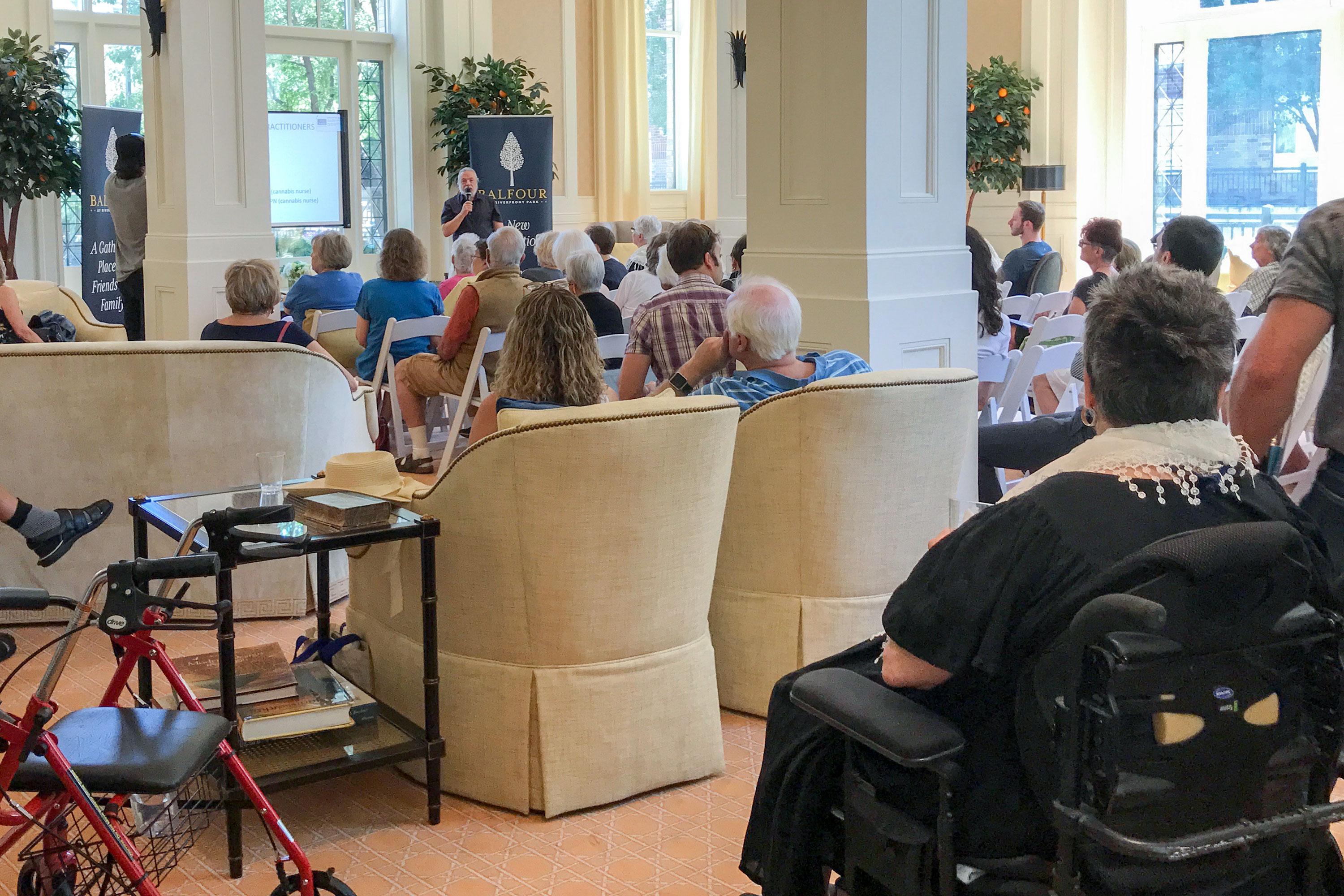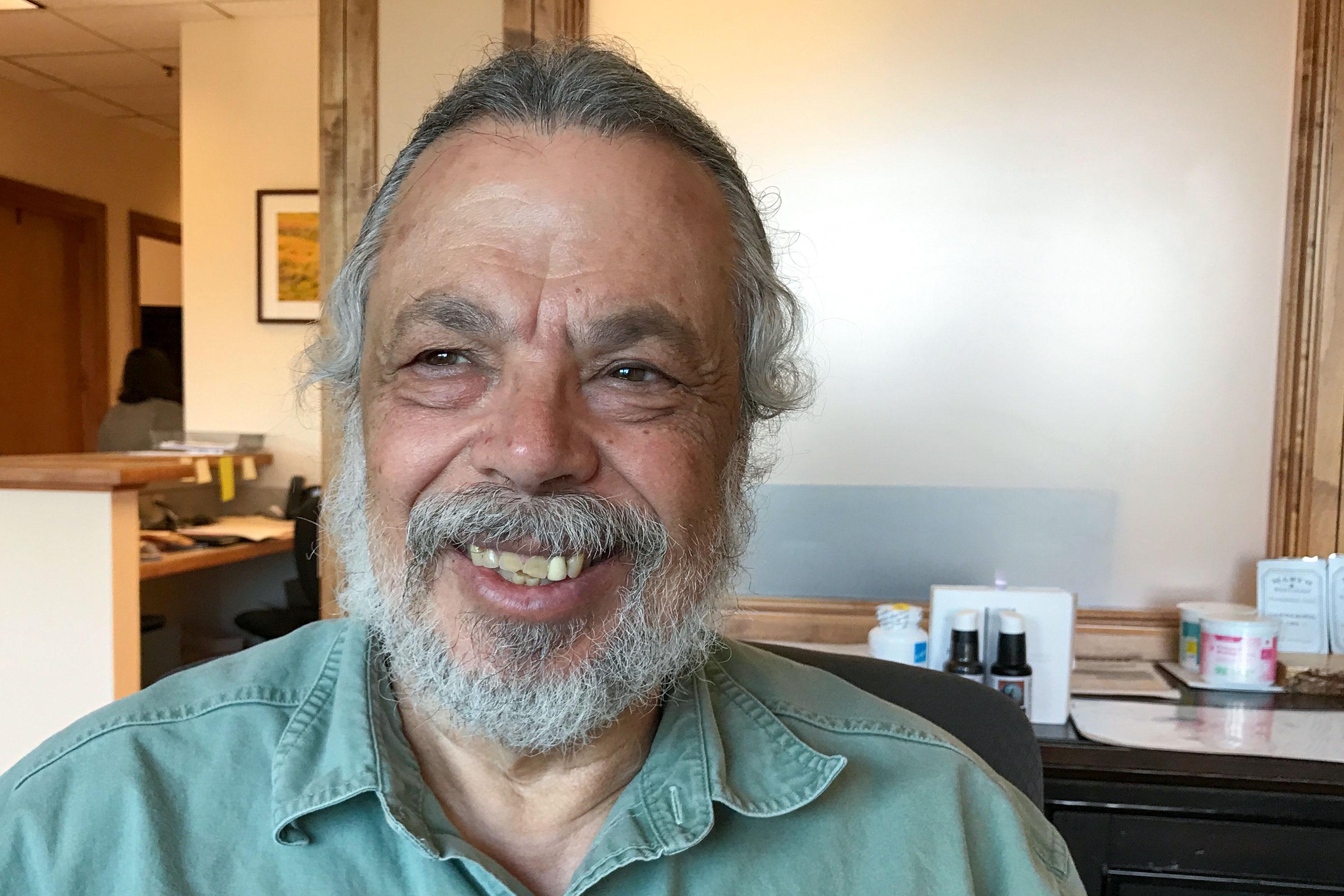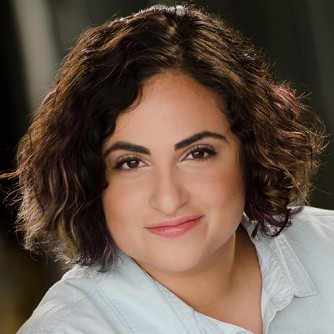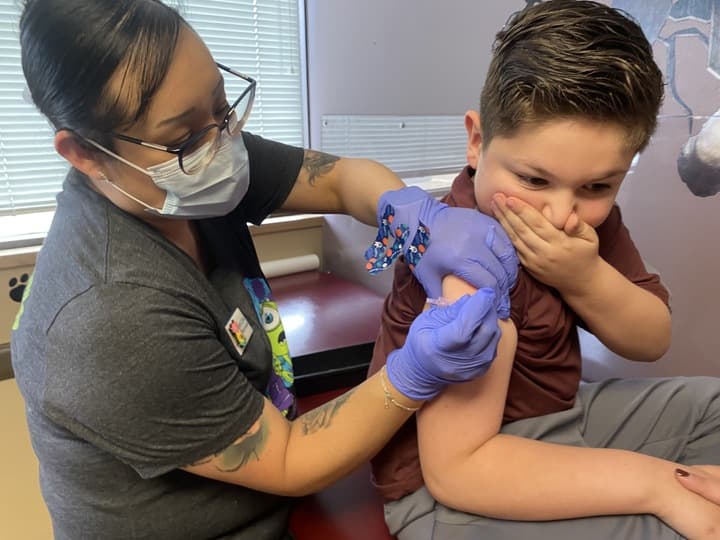

In the airy first-floor lounge of Balfour Senior Living at Riverfront Park in downtown Denver, Dr. Joe Cohen prepares to speak to a packed house. This is “Cannabis 101 for Seniors,” a talk he’s given before. Michael Schonbrun, Balfour’s CEO, says he’s got residents in almost all of his Colorado retirement communities using marijuana in some form.
“All of a sudden we noticed that that crabby lady in apartment 103 was suddenly much more cheerful, much easier to get along with, and the question was ‘what happened to good old Mary Sue?’ And it was ‘she’s consuming edible marijuana!’” he laughs.
Rather than try to dissuade residents, Schonbrun invited a medical professional to ensure informed decisions around marijuana after cannabis companies Stratos and Holos Health pitched the idea to him. At the end of the day, Schonbrun says it’s not his job to tell anyone else what to do.
“We haven’t taken a survey, we haven’t asked people. They don’t have to register they’re using it, any more than knowing if they go shopping in the morning for their refrigerators what brand of cereal they’re getting,” he says. “We don’t check to see are they bringing in edibles, that’s up to them.”
National and state data suggests that Schonbrun will likely see more and more Mary Sues in his retirement communities.
The Centers For Disease Control found that marijuana use among adults over 65 increased more than 300 percent between 2002 and 2014. While they’re still only less than 2 percent of the total population of users, that increase is significant.
In Colorado, since July 2014, the first month when the state’s department of health started breaking out the demographic numbers they publically post, the number of seniors who hold medical marijuana cards has been slowly rising. As a percentage of the overall share of medical cards, those over 61 were 21 percent of the total as of August 2017.

There’s still a lot we don’t know about marijuana use among seniors. That’s where Brian Kaskie comes in.
Kaskie is a professor of health policy at the University of Iowa. Up until fairly recently, his research focused mainly on opioid use, specifically among older adults. When he was asked to consult on Iowa’s own medical marijuana program, he realized that he — or anyone else — didn’t know a whole lot about this population’s usage habits.
“Older adults are for example more likely to have a prescription medication to begin with. And so how does the use of cannabis intersect with that?” he says. “That becomes one question — we don’t know.”
Kaskie, along with Dr. Sara Qualls at the University of Colorado at Colorado Springs, won a $97,500 grant from the state to study marijuana use among older adults: how they consume, why they consume, how often, everything. They’re also collecting data from older adults who don’t partake, and trying to understand why.
Kaskie and Qualls are conducting focus groups all over Colorado to get the most accurate portrait of the aging marijuana user. Kaskie stresses the importance of this study by pointing to the wealth of information on marijuana use among almost every other age group. In spite of all that data, researchers come up short when it comes to older adults.
“We have to think about other outcomes that are relevant to them, like does this help you reduce your dependency on opioids? Or does this lead to you feeling more anxious? Or a whole host of other outcomes that are specific to older adults.”

When it comes to understanding why more seniors are using marijuana, Dr. Joe Cohen, the man behind “Cannabis 101 for Seniors,” can provide at least some anecdotal evidence.
“We see a lot of arthritic conditions whether it be osteoarthritis, or degenerative disc disease, back problems, we see a lot of what we call neurodegenerative diseases, which are more common in the elderly population — that can be anything from Parkinson’s to multiple sclerosis,” Cohen says. The list goes on and on.
The one thing that sets seniors apart from his other marijuana using patients is their concern over pot’s reputation. The first thing they tell Cohen is “I don’t wanna get high,” he says.
His older patients are often surprised to learn that a buzz no longer comes with the territory. CBD, marijuana’s non-psychoactive component that’s responsible for many of its medicinal effects, can now be purchased alone, in pill, oil or edible form. Cohen says CBD in some form tends to be more popular with his patients over 65.
Back on the patio at Balfour Senior Living, over wine and cheese, Judy and Mark Lerner say they learned a lot from Cohen’s talk. The pair don’t even live at Balfour. They heard about the talk and thought it would be a good opportunity to check out the community. But now they’re both considering trying marijuana for various ailments.
“He talked about it being beneficial to diabetics, and I’m diabetic,” Mark Lerner says. “He talked about it maybe being of benefit to someone that’s having dementia issues, and I’m in that category.”
“Likewise, I have bad headaches,” Judy chimes in. “I would use it.”
These two say they won’t be leaving here and heading straight for a dispensary.
“We have some wonderful brownies in our freezer that our daughter-in-law has made for us,” Judy laughs, clarifying that yes, they are marijuana “brownies brownies.”







